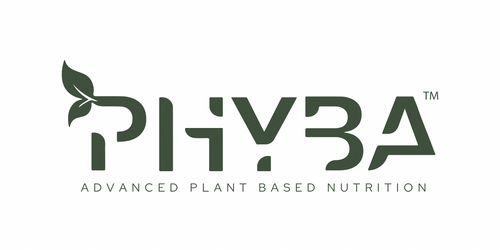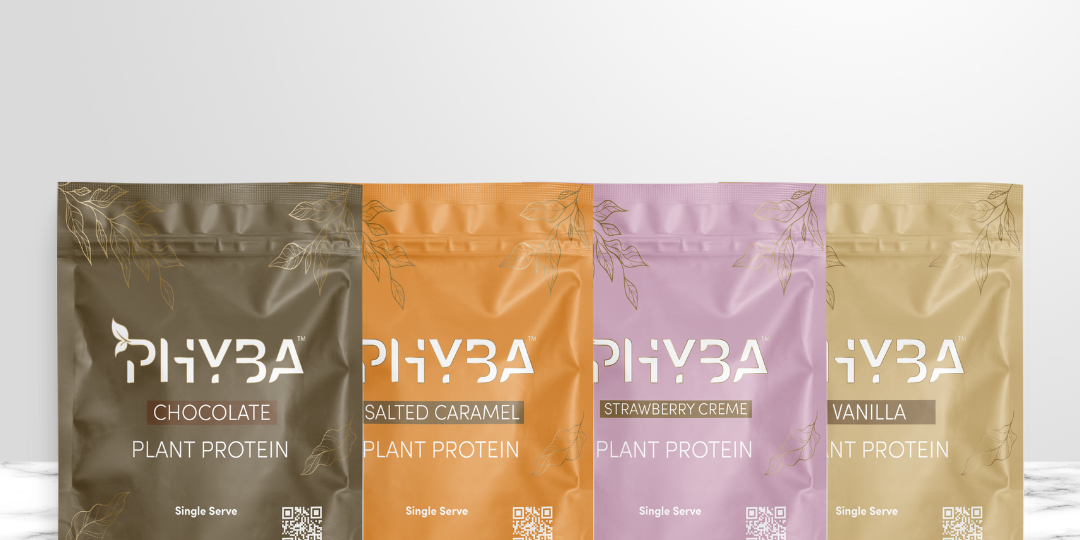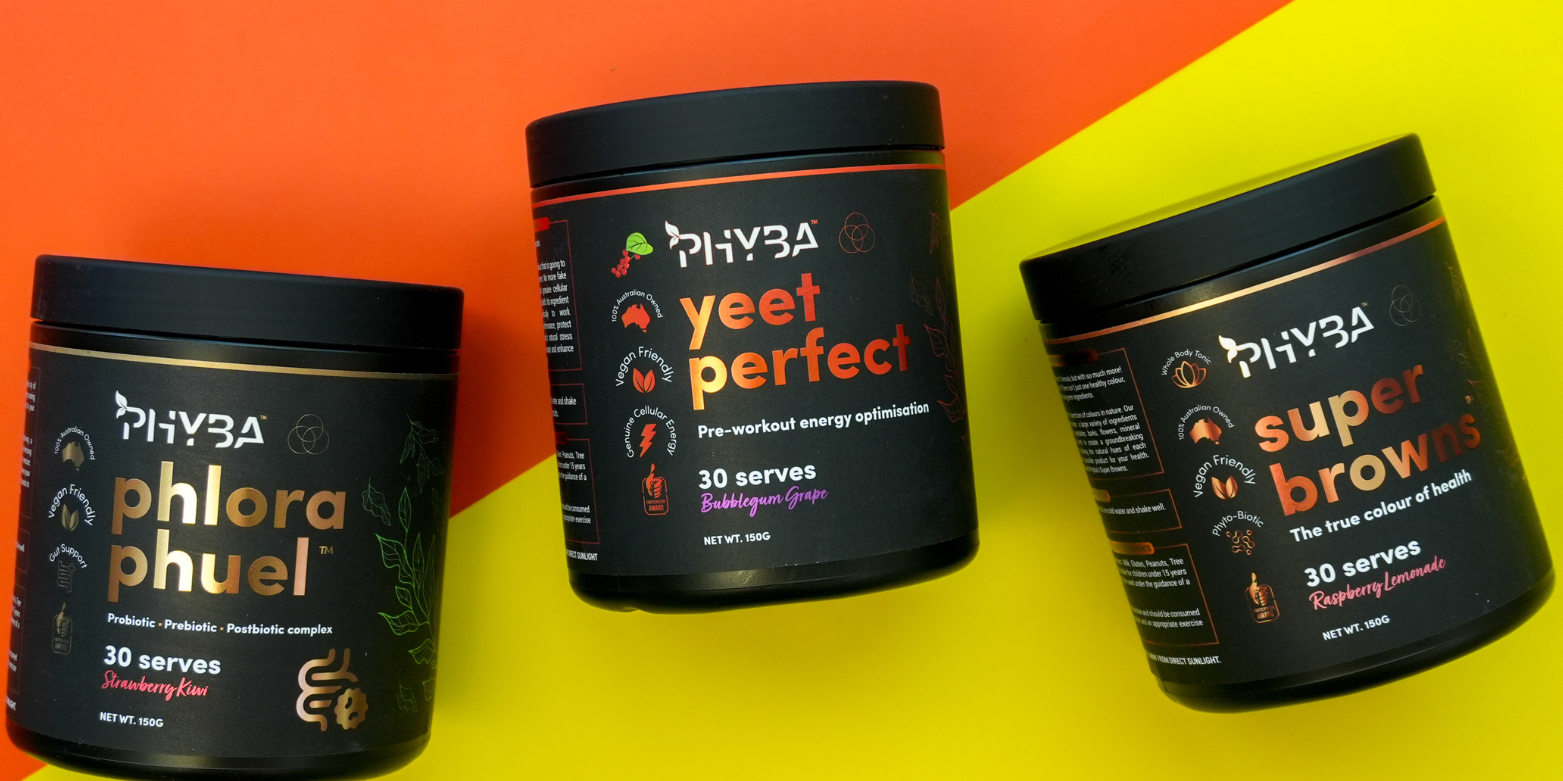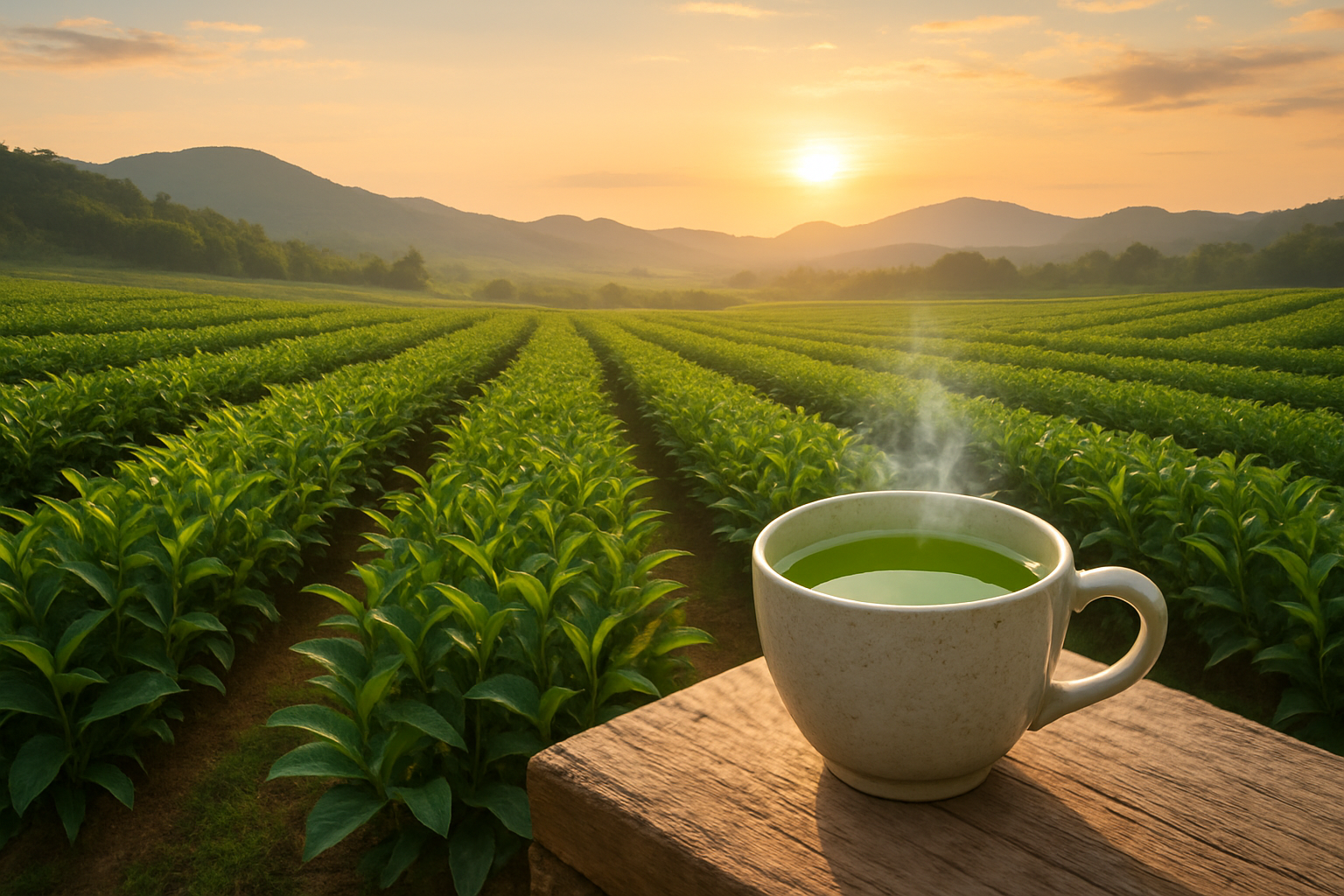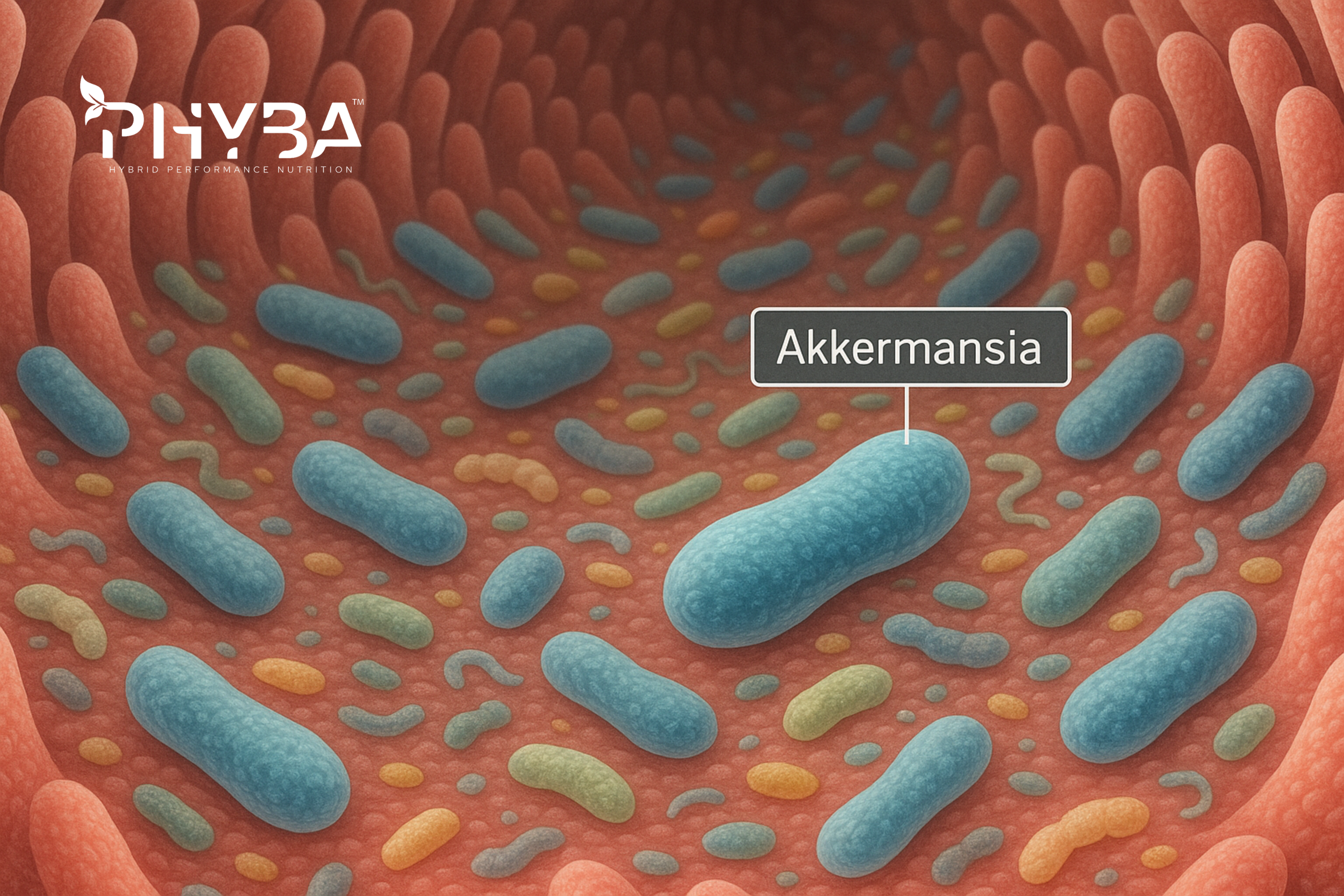A staple ingredient inside SOLARBEAM
When it comes to functional drinks that blend ancient tradition with modern science, green tea stands out. Revered for its calming properties and antioxidant power, it also harbors an unexpected superpower: nourishing your gut microbiome, particularly Akkermansia muciniphila, the superstar of next-gen probiotics. Found with in SOLARBEAM, Phyba's brand new daily pick me up!
🌱 What Are Polyphenols?
Polyphenols are a class of naturally occurring plant compounds known for their antioxidant, anti-inflammatory, and anti-microbial effects. They’re found in fruits, vegetables, tea, wine, and dark chocolate.
They’re broadly categorized into:
-
Flavonoids (e.g., catechins in green tea)
-
Phenolic acids
-
Stilbenes
-
Lignans
In green tea, the catechins are the dominant polyphenols. The most notable one is:
-
Epigallocatechin gallate (EGCG) – the most bioactive and abundant polyphenol in green tea, responsible for most of its health benefits.
🍃 Polyphenol Power in Green Tea
Green tea is incredibly rich in catechins, especially EGCG. Here’s the breakdown per 240 mL (8 oz) serving:
| Compound | Approx. Content |
|---|---|
| EGCG | 30–80 mg |
| EGC | 10–30 mg |
| ECG | 5–20 mg |
| EC | 3–10 mg |
This potent combination gives green tea its edge in:
-
Combating oxidative stress
-
Reducing inflammation
-
Modulating blood sugar and cholesterol
But the most exciting science now points to their prebiotic potential.
🦠 Polyphenols as Prebiotics: Feeding the Right Microbes
While our bodies absorb some polyphenols, a large fraction (~90–95%) reaches the colon undigested, where they interact with gut microbes. These interactions turn polyphenols into smaller bioactive compounds while fueling beneficial bacteria.
✅ Polyphenols act as “selective fertilizers” for gut flora.
✅ They help suppress pathogenic microbes and promote health-enhancing ones like Akkermansia.
🔬 How Green Tea Polyphenols Support Akkermansia muciniphila
-
Enhancing Mucin Production
Green tea catechins have been shown to increase mucin secretion in the gut lining. Since Akkermansia feeds on mucin (without damaging the gut), this leads to higher abundance and activity of Akkermansia. -
Creating a Favorable Niche
The antimicrobial effects of green tea selectively inhibit harmful bacteria, reducing competition and allowing beneficial species like Akkermansia to thrive. -
Improving Barrier Function
EGCG improves tight junction integrity, which in turn promotes a gut environment where Akkermansia excels—as this bacterium thrives near the mucosal surface of a healthy gut barrier. -
Inducing Anti-inflammatory Effects
By reducing systemic inflammation, polyphenols decrease immune stress in the gut, further encouraging Akkermansia colonization and activity.
🧪 Supporting Evidence from Research
-
Anhê et al. (2015) found that polyphenol-rich cranberry extract significantly increased Akkermansia levels and improved metabolic markers in obese mice. Green tea has a similar polyphenol profile.
-
Shin et al. (2014) showed that polyphenols promote gut microbial diversity and barrier function, both critical for Akkermansia’s growth.
-
Zhang et al. (2020) demonstrated that green tea extract supplementation in mice enriched Akkermansia populations and reduced weight gain, inflammation, and insulin resistance.
💚 Green Tea as a Gut-Friendly Lifestyle Habit
Want to support your Akkermansia naturally?
✔️ Daily Tips:
-
Drink 2–3 cups of unsweetened green tea daily.
-
Pair green tea with prebiotic-rich foods (onions, garlic, oats) to synergize effects.
-
Choose high-EGCG green tea varieties like sencha, matcha, or gyokuro.
-
Avoid adding milk, which can bind polyphenols and reduce their effectiveness.
🎯 Final Thoughts
Green tea isn't just a relaxing beverage—it's a microbiome-supporting, immunity-enhancing, anti-aging powerhouse. Thanks to its polyphenol-rich profile, it supports the growth of beneficial bacteria like Akkermansia muciniphila, helping you improve gut integrity, reduce inflammation, and support whole-body health.
So the next time you sip green tea, know you’re not only calming your mind—you’re nourishing your inner ecosystem.
